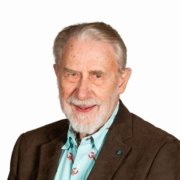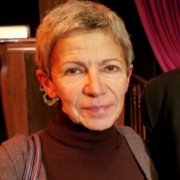Behind the Scenes at Cancer Commons: Working with Patients

Curious Dr. George
Cancer Commons Contributing Editor George Lundberg, MD, is the face and curator of this invitation-only column.

Emma Shtivelman, PhD
Cancer Commons Chief Scientist
Cancer Commons helps advanced cancer patients identify and access their best-possible treatments. Here, our Curious Dr. George asks Chief Scientist Emma Shtivelman, PhD, for an inside look at how she helps the people who turn to us for guidance.
Curious Dr. George: As Chief Scientist at Cancer Commons for many years, you have helped thousands of patients with advanced cancer to better understand their options in difficult circumstances. What is the process you typically follow to provide useful information in a compassionate manner without instilling false hope?
Emma Shtivelman, PhD: The “simple” goal of Cancer Commons is to help cancer patients to find better treatments. Most of the patients who register with Cancer Commons have advanced or metastatic cancers, and the range of questions they ask is very wide. To name a few: requests to find clinical trials, advice for dealing with adverse effects of treatments, questions about drugs’ efficacy and side effects, suggestions for the “best” oncologist near them, and more.
To answer these questions, here is the process I follow:
- Collect and review all relevant medical records after securing the patient’s consent to share them.
- Decide whether the patient needs a new treatment (most often they do, because patients typically contact us when they experience progression) or a new oncologist.
- If indicated, suggest seeking a second opinion at a nearby comprehensive cancer center.
- Mutational profiling often opens new treatment options for cancer patients. Thanks to our collaboration with the company Tempus, we offer mutational testing to Cancer Common patients who have no other means to have this done—even though it should be an integral part of modern cancer care. The results, which we can access immediately and directly, often generate suggestions for new treatment options.
- If the patient’s performance status does not warrant further active treatment, we may suggest considering palliative care only, or hospice, usually in support of the opinion of the treating oncologist. These are difficult emails and calls. Some patients (and often their caregivers) do not understand the gravity of their situation.
- Search for clinical trials: I have always considered finding relevant clinical trials as the most important contribution Cancer Commons can make to patients’ treatment. I try to suggest trials with investigational drugs that have, preferably, preliminary evidence of clinical activity, or at least very strong evidence of relevant preclinical activity. The search for clinical trials can be both the most rewarding and most frustrating part of my work. If I see a highly relevant trial, I rejoice, but later I may hear from patients that they are unable to enroll for a variety of reasons. For instance, travel for trial treatment may be not feasible, the treating oncologist might prefer to start another line of chemotherapy (which may make patient ineligible for most trials in the future), or the particular cohort may no longer be enrolling at a trial site nearby.
My work with patients can pose significant challenges. Here are the major problems that can arise:
- Patients often do not provide relevant information about their conditions and treatments, because they may not have a clear understanding of what information is most important, or because they do not have access to their medical records.
- Patients sometimes seek only “alternative” treatments not supported by clinical evidence.
- Because I communicate with patients and not with their doctors, the information I provide—in particular about relevant clinical trials—may not be conveyed to or discussed with the treating oncologist. Some patients are hesitant to do so because they are afraid to offend their doctors. Others may have difficulty understanding the information they receive and dismiss it.
- The most daunting obstacles I face have to do with obscure and often inconsequential medical history that excludes patients from participating in clinical trials. For a given patient, I can easily screen out trials based on listed eligibility criteria (such as preexisting health conditions, organ dysfunction, brain metastases, HIV infection, number of previous lines of treatment, or previous malignancies). However, on occasion, we encounter what I consider to be unjustified pre-existing conditions that preclude enrollment. Two examples of this are a left bundled branch block in a patient without a history of heart disease and asymptomatic pulmonary mycobacterium avium complex diagnosed incidentally 15 years earlier. When trial exclusion happens because of rigid and hard-to-justify trial protocols, it is very frustrating for me and the patients I work with.
Despite the challenges of our work, I always hope, and sometimes know, that patients and their oncologists can arrive at new, more promising treatments based on Cancer Commons’ personalized research. This is what drives me to continue working with cancer patients.
Dr. Shtivelman can be reached at emma@cancercommons.org.
***
Copyright: This is an open-access article distributed under the terms of the Creative Commons Attribution License, which permits unrestricted use, distribution, and reproduction in any medium, provided the original author and source are credited.



